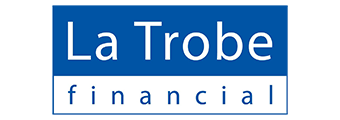A non-conforming home loan, sometimes called a ‘specialist home loan’, is a mortgage for those who fail to meet a lender’s standard criteria for funding.
However, a non-conforming home loan might not be the answer to all non-conforming borrower’s dreams. They typically come with higher interest rates than standard mortgage products – meaning they often cost more day-to-day.
Who might best suit a non-conforming home loan?
If you’re self-employed, nearing retirement, or recently started a new business or job, you might find yourself in the non-conforming ranks when it comes to home loan applications.
However, individuals with financial situations outside the ‘standard’ boundaries aren’t necessarily 'bad' borrowers. It may be the case that you work in an insecure industry or you're self-employed and can’t quite prove your income in the same way a salaried worker can.
You might also suit a non-confirming home loan if you hold additional debts and you wish to consolidate them into a home loan or you have a poor credit history.
Other situations in which a non-conforming home loan might be a borrower’s best bet include:
- If they’re a new Australian resident and can’t verify their previous credit history
- If they wish to borrow with a particularly high loan-to-value ratio (LVR)
- If they want to secure a loan against a property or properties that aren’t normally considered appropriate security, such as company title units, studio apartments, serviced apartments, warehouse apartments, or resort-style accommodation
Types of non-conforming loans
There are two main types of non-conforming loans: Bad credit home loans and debt consolidation home loans.
Bad credit home loan
Lenders assessing a borrower for this type of mortgage product will consider their reliable income as well as their credit history.
It is important to remember that not all hopeful borrowers with a poor credit history will be a good fit for a non-conforming home loan. A lender will, of course, want to find out the reason an applicant got into such a situation in the first place.
The lender might also wish to see a person’s circumstances or behaviours have changed in the time since their credit score was damaged.
Debt consolidation home loan
There is another type of non-conforming home loan out there for those who hold multiple debts and wish to consolidate them into a home loan.
A debt consolidation home loan may allow a borrower to combine all of the repayments from their existing debts into one lump sum by rolling all their owings into a single facility.
Doing so can be beneficial as it can limit the juggling a person with multiple debts must do and give them some breathing space, as they might be able to extend the time in which they have to pay back a debt.
It could even see them paying a lower interest rate, as home loans typically provide lower rates than other consumer debt products. However, it also means a person may end up repaying what was a short-term debt off over decades, rather than months or years. Thus, they could end up paying more in interest over the long term than they otherwise would have.
See also: Is consolidating debt into your mortgage a good idea?
Low doc home loan vs non-conforming mortgage: Spot the difference
In the traditional sense, low doc home loans can be considered non-conforming mortgages. They allow borrowers who may not be able to prove their steady income with alternative methods of verifying their earnings.
However, while both low doc mortgages and non-conforming home loans mightn’t demand copies of an applicant’s tax returns and financial statements, the requirements for an approved low doc home loan are stricter than those for a non-conforming home loan.
Low doc mortgages are almost exclusively the domain of borrowers with unblemished credit histories and those who generally won’t want to borrow with an LVR or more than 80%.
Low doc home loans
Considering taking out a low doc home loan? Here are some of the most competitive deals on the market right now.
| Lender | Home Loan | Interest Rate | Comparison Rate* | Monthly Repayment | Repayment type | Rate Type | Offset | Redraw | Ongoing Fees | Upfront Fees | Max LVR | Lump Sum Repayment | Extra Repayments | Split Loan Option | Tags | Features | Link | Compare | Promoted Product | Disclosure |
|---|---|---|---|---|---|---|---|---|---|---|---|---|---|---|---|---|---|---|---|---|
6.34% p.a. | 6.52% p.a. | $3,108 | Principal & Interest | Variable | $10 | $1,325 | 80% | |||||||||||||
6.49% p.a. | 6.75% p.a. | $3,157 | Principal & Interest | Variable | $0 | $995 | 70% | |||||||||||||
6.24% p.a. | 6.52% p.a. | $3,075 | Principal & Interest | Variable | $295 | $0 | 85% |
Is a non-conforming mortgage more expensive than a regular home loan?
Non-conforming home loans are generally more expensive than their regular counterparts as they typically carry higher interest rates.
How much higher are interest rates on non-conforming loans? Well, that will likely depend on an individual borrower.
Lenders will normally place higher interest rates on non-conforming home loans due to the fact that non-conforming borrowers often appear (on paper at least) to be a higher risk.
In considering the financial history or current situation of a non-conforming borrower, a lender might expect they’re more likely to default on their home loan.
Non-conforming mortgage providers might also ask an applicant to provide a larger deposit in order to negate some of the risk it’s perceived to bear in providing a home loan.
Though, a borrower signing on to a non-conforming home loan today may find themselves able to secure a better deal later on. If they manage to build up their credit score or pay down some of their additional debts after securing their mortgage, they might find themselves qualified for a standard home loan down the line. At that point, they may be able to simply refinance to a typical home loan product and reap the rewards of their financial labour.
What other costs are involved with non-conforming home loans?
When seeking out a home loan product, most borrowers put weight on the interest rates on offer. However, some lenders charge additional fees that can increase the cost of a mortgage exponentially.
The fees on non-conforming home loans can be higher than those on traditional mortgage products. If possible, try to choose a lender that is upfront about any extra charges.
On a more positive note, some non-conforming lenders might reward a borrower for improving their credit score or improving their financial skills by lowering their interest rate.
Final thoughts on non-conforming home loans
If you're considering a non-conforming home loan, it might be beneficial to first reflect on strategies to strengthen your financial habits and ensure a stable financial future.
Choosing a product that aligns with your financial goals, rather than one with options that include tempting features like lines of credit or credit cards, could help maintain your financial discipline.
Image by Mulyadi on Unsplash
First published in April 2024
Collections: Mortgage Pre-approval

.jpg)





Share